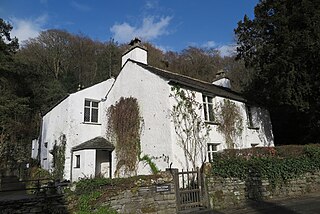Related Research Articles

Tate is an institution that houses, in a network of four art galleries, the United Kingdom's national collection of British art, and international modern and contemporary art. It is not a government institution, but its main sponsor is the UK Department for Culture, Media and Sport.

English Heritage is a charity that manages over 400 historic monuments, buildings and places. These include prehistoric sites, medieval castles, Roman forts and country houses.

The Department for Culture, Media and Sport (DCMS) is a department of His Majesty's Government, with responsibility for culture and sport in England, and some aspects of the media throughout the UK, such as broadcasting.

The minister of Canadian heritage is the minister of the Crown who heads Canadian Heritage, the department of the Government of Canada responsible for culture, media, sports, and the arts.

Arts Council England is an arm's length non-departmental public body of the Department for Culture, Media and Sport. It is also a registered charity. It was formed in 1994 when the Arts Council of Great Britain was divided into three separate bodies for England, Scotland and Wales. The arts funding system in England underwent considerable reorganisation in 2002 when all of the regional arts boards were subsumed into Arts Council England and became regional offices of the national organisation.

The British Film Institute (BFI) is a film and television charitable organisation which promotes and preserves film-making and television in the United Kingdom. The BFI uses funds provided by the National Lottery to encourage film production, distribution, and education. It is sponsored by the Department for Culture, Media and Sport, and partially funded under the British Film Institute Act 1949.

The Wordsworth Trust is an independent charity in the United Kingdom. It celebrates the life of the poet William Wordsworth, and looks after Dove Cottage in the Lake District village of Grasmere where Wordsworth and his sister Dorothy Wordsworth lived between 1799 and 1808. It also looks after the majority of the surrounding properties in the conservation area of Town End, and a collection of manuscripts, books and fine art relating to Wordsworth and other writers and artists of the Romantic period. In 2020 it introduced the brand name Wordsworth Grasmere.

Culture24, originally the 24 Hour Museum, is a British charity which publishes websites, Culture24, Museum Crush and Show Me, about visual culture and heritage in the United Kingdom, as well as supplying data and support services to other cultural websites including Engaging Places.

The Arts Council of Wales is a Welsh Government-sponsored body, responsible for funding and developing the arts in Wales.

Watts Gallery – Artists' Village is an art gallery in the village of Compton, near Guildford in Surrey. It is dedicated to the work of the Victorian-era painter and sculptor George Frederic Watts.
Sheffield, England, has a large population of amateur, working and professional visual artists and artworks.

Weston Museum is a museum in Weston-super-Mare, North Somerset, England. It was established in 1861. and is home to North Somerset Council museum collection with exhibits relating to Weston-super-Mare and the surrounding area from 400 million years ago to the present day.
The Collections Trust is an independent UK-based charity that works with museums, libraries, galleries and archives worldwide to improve the management and use of collections. It was established in February 1977 as the Museum Documentation Association (MDA) and re-launched as the Collections Trust in 2008. Its head office is in Shoreditch, London.
The Ministry of Heritage, Sport, Tourism and Culture Industries, was created on January 18, 2010 when the Ministry of Culture and the Ministry of Tourism were combined under one ministry. Sport was added to the portfolio in 2011. It is responsible for the development of policies and programs and the operation of programs related to tourism, arts, cultural industries, heritage sectors and libraries, in Ontario. The Ministry works in partnership with its agencies, attractions, boards and commissions and the private sector to maximize the economic, cultural and social contributions of its agencies and attractions, while promoting the tourism industry and preserving Ontario's culture and heritage.
The Designation Scheme is an English system that awards "Designated status" to museum, library and archive collections of national and international importance. The Scheme is administered by Arts Council England (ACE). As of 2023, 163 collections are officially designated. National museums are not eligible for Designated status.
Manitoba Sport, Culture and Heritage is the department of the Government of Manitoba responsible for managing government programs and services that support the sport, art, culture, and heritage of the province, through developing, supporting, promoting, and celebrating the identity and well-being of Manitoba and its communities.
The Theatres Trust is the National Advisory Public Body for Theatres in the United Kingdom. It was founded in 1976 by an Act of Parliament to "promote the better protection of theatres for the benefit of the nation". The Trust has played a leading role in protecting theatre buildings for the duration of its history. It provides specialist advice to a variety of stakeholders throughout Britain to assist with the promotion and preservation of theatre buildings. The Trust's central aim is to "ensure that current and future generations have access to good quality theatres that reflect our cultural life and offer inspiring places to enjoy theatre". The Trust also holds historical and architectural records of many theatre buildings throughout the United Kingdom, which is made available online as part of a "Theatres Database".
War Memorials Trust works for the protection and conservation of war memorials in the UK. The charity provides free information and advice as well as administering grant schemes for the repair and conservation of war memorials.

The Contemporary Art Society (CAS) is an independent charity that champions the collecting of outstanding contemporary art and craft for UK museum collections. Since its founding in 1910 the organisation has donated over 10,000 works to museums across the UK. From the 1930s the Society also donated works to Commonwealth museums, but since 1989 the focus has remained exclusively on UK institutions.
References
- ↑ "Arts Council – Museums and libraries formally transfer to Arts Council England". Archived from the original on 25 November 2011. Retrieved 10 August 2012.
- ↑ "Responsibilities transfer". archived MLA website. Archived from the original on 15 February 2012. Retrieved 28 August 2012.
- ↑ Museum and Galleries Commission Archived 2 October 2009 at the Wayback Machine , The National Archives, UK.
- ↑ "Arts Council – Designation Scheme" . Retrieved 10 August 2012.